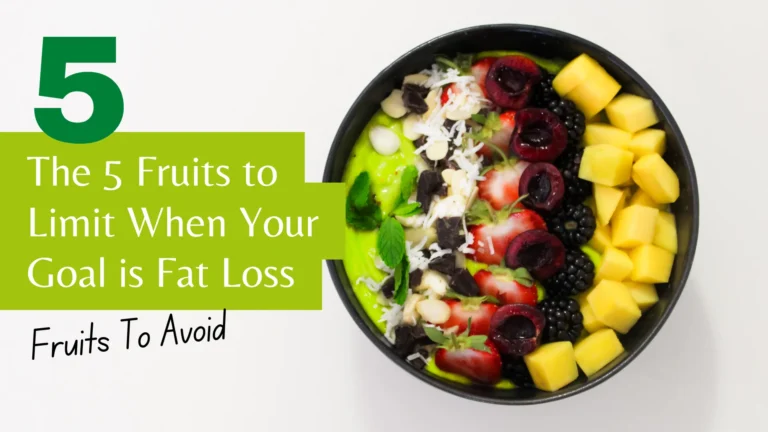Have you ever felt frustrated on your weight loss journey? You're eating salads, avoiding junk food, and choosing fruit over cake. Yet, the scale refuses to budge. It can feel defeating. You might wonder if even “healthy” foods are secretly working against you. The truth is, when it comes to weight management, not all fruits are created equal. Understanding which are the fruits to avoid for weight loss can be the missing piece of your puzzle.
This guide is here to bring clarity, not confusion. We are not here to label any food as “bad.” Instead, we'll explore why some delicious, nutrient-packed fruits might be slowing your progress. You will learn about their sugar and calorie content. This knowledge will empower you to make smarter choices that align with your health goals.
Quick Overview: Understanding Fruits and Weight Loss
| Feature | Benefit |
|---|---|
| Natural Sugars (Fructose) | Provides quick energy but can contribute to calorie surplus if overeaten. |
| Calorie Density | Some fruits pack more calories per serving, impacting your daily intake. |
| Fiber Content | High-fiber fruits promote fullness, helping you eat less overall. |
| Water Content | Fruits with high water content help with hydration and satiety with fewer calories. |
| Portion Control | Understanding serving sizes is key to enjoying any fruit without derailing your diet. |
Are There Really Fruits to Avoid for Weight Loss?
Let's clear the air first. No natural fruit is inherently “bad” for you. All fruits offer valuable vitamins, minerals, and antioxidants. However, when your primary goal is shedding pounds, some are better allies than others. The concept of fruits to avoid for weight loss is not about complete elimination. It's about moderation and awareness.
Certain fruits contain significantly more natural sugar and calories. Consuming them in large quantities can stall your progress. It can make it harder to maintain the calorie deficit needed for fat loss. Think of it as choosing the most efficient tool for the job. While all fruits are healthy, some are simply more aligned with a weight loss-focused diet.
How High-Sugar Fruits Can Affect Your Weight Management
The impact of fruit on your body comes down to a few key factors. Understanding these will help you see why moderation is so important. It's about how your body processes sugar, even natural sugar.
Understanding Natural Sugars and Calories
Fruits contain a natural sugar called fructose. Your body uses this for energy. But when you consume more sugar than you burn, your body stores the excess. Often, this excess is stored as fat. Fruits with higher sugar content also tend to have more calories.
The Role of the Glycemic Index (GI)
The Glycemic Index measures how quickly a food raises your blood sugar. High-GI foods can cause a rapid spike, followed by a crash. This crash can leave you feeling hungry and craving more sugar. This cycle can lead to overeating and hinder your weight loss efforts.
Why Portion Control is Everything
This is the most important rule. You could eat a small portion of a high-sugar fruit and still lose weight. The problem arises when we eat them without thinking. A whole bag of grapes or a giant mango can add hundreds of calories to your day. Being mindful of portion sizes is crucial.
The 5 Fruits to Limit When Your Goal is Fat Loss
Now, let's dive into the specific fruits that you might want to eat in smaller amounts. Remember, this is about being mindful, not fearful. These fruits are still packed with nutrients. They just require a little more attention when you are trying to lose weight.
1. Mangoes: The Sweet Tropical King
Mangoes are delicious and packed with Vitamin C and A. They are a true tropical delight. However, they are also one of the sweetest fruits you can find. A single medium-sized mango can contain over 45 grams of sugar. That's a huge amount for one snack.
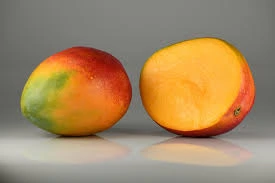
This high sugar content also means a higher calorie count. If you're not careful, enjoying a mango can feel like eating a dessert. It's a healthy dessert, for sure, but it can easily push you over your daily calorie goal if you're not tracking it.
| Feature | Benefit |
|---|---|
| High Vitamin C Content | Boosts your immune system and skin health. |
| Rich in Vitamin A | Supports vision and immune function. |
| Contains Soluble Fiber | Aids in digestion and can help lower cholesterol. |
| Pros | Cons |
|---|---|
| Incredibly delicious flavor. | Very high in natural sugar and calories. |
| Excellent source of key vitamins. | |
| Provides a quick energy boost. | |
| Versatile in smoothies and salads. |
2. Grapes: The Easy-to-Overeat Snack
Grapes are another fruit to be cautious about. They are small, sweet, and incredibly easy to eat. It's so simple to sit down with a large bunch and finish it without even realizing it. This mindless snacking is where the trouble begins.
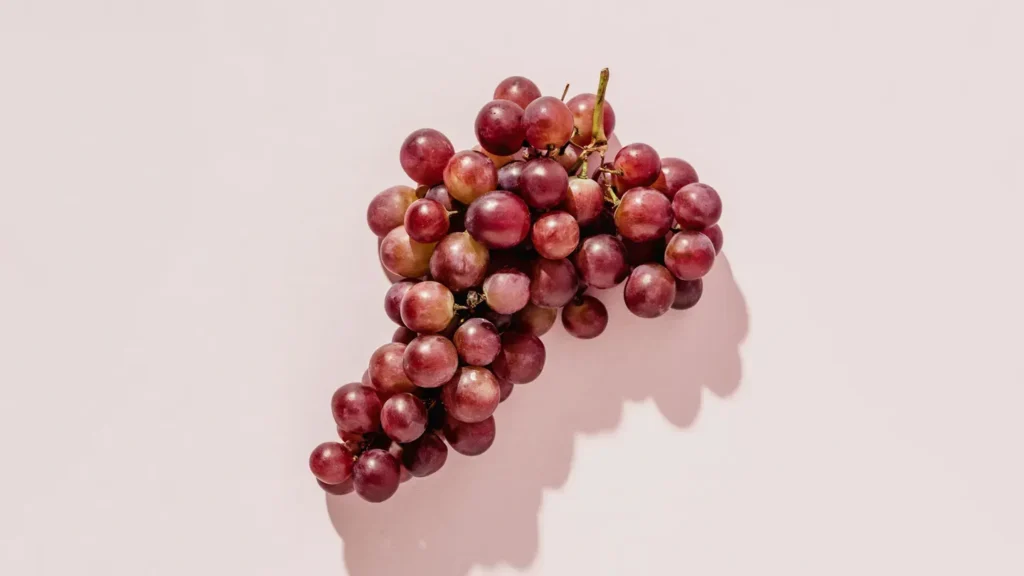
One cup of grapes contains around 23 grams of sugar. While they do offer antioxidants, the sugar adds up fast. Because they don't have much fiber or protein, they don't make you feel very full. This means you might find yourself feeling hungry again soon after eating them.
| Feature | Benefit |
|---|---|
| Rich in Antioxidants | Contains resveratrol, which is good for heart health. |
| Convenient Snack | Easy to pack and eat on the go without any prep. |
| Good Source of Vitamin K | Important for blood clotting and bone health. |
| Pros | Cons |
|---|---|
| Convenient and requires no peeling. | Very easy to overeat due to their small size. |
| Contains powerful antioxidants. | |
| Hydrating due to high water content. | |
| Loved by both kids and adults. |
3. Cherries: A Sweet but Potent Treat
Cherries are often celebrated for their anti-inflammatory properties. They are a wonderful summer treat. But like grapes, they are high in sugar. A single cup of cherries can pack nearly 20 grams of sugar.
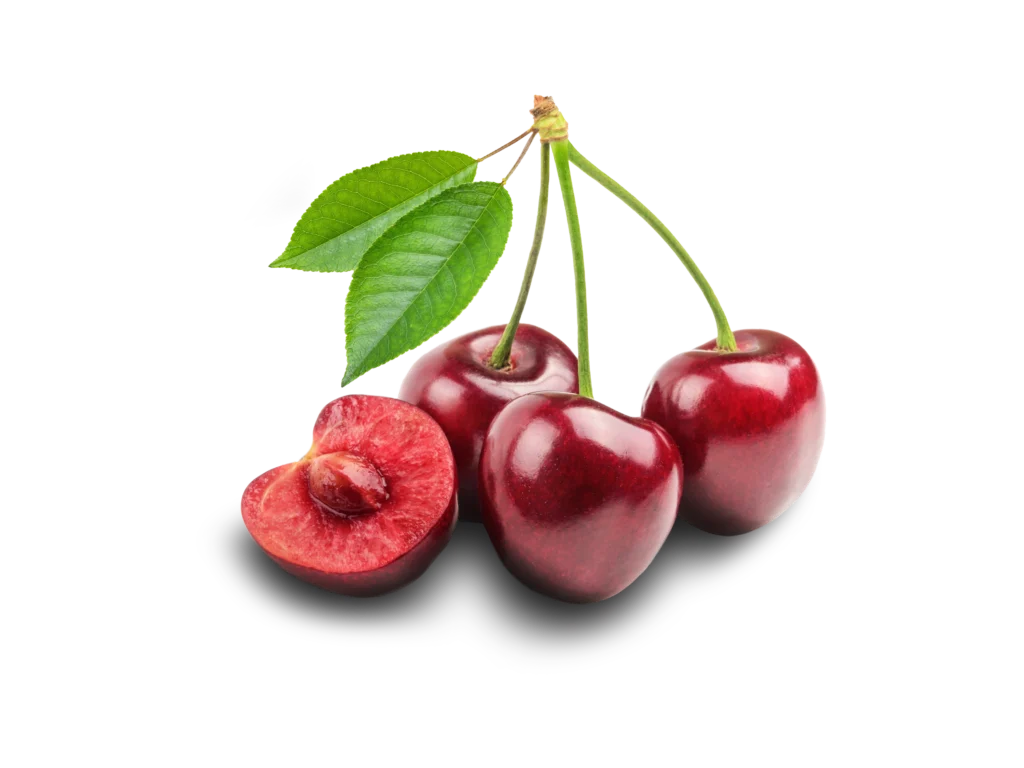
While they are certainly a better choice than a candy bar, they should be enjoyed in moderation. If you are watching your sugar intake closely, you might want to measure your portion. This ensures you get the benefits without the excess sugar that can stall weight loss.
| Feature | Benefit |
|---|---|
| Anti-Inflammatory Properties | Can help reduce muscle soreness and arthritis symptoms. |
| Source of Melatonin | May help improve sleep quality. |
| Packed with Anthocyanins | Powerful antioxidants that give them their red color. |
| Pros | Cons |
|---|---|
| May help with sleep and reduce inflammation. | Higher sugar content compared to berries. |
| Unique and rich flavor profile. | |
| Good source of potassium and Vitamin C. | |
| Can be enjoyed fresh or frozen. |
4. Bananas: The Energy Powerhouse
Bananas are a go-to snack for many, especially for a pre-workout energy boost. They are a great source of potassium and convenient to eat. However, they are also higher in calories and carbohydrates compared to other fruits. A medium banana has about 105 calories and 27 grams of carbs.
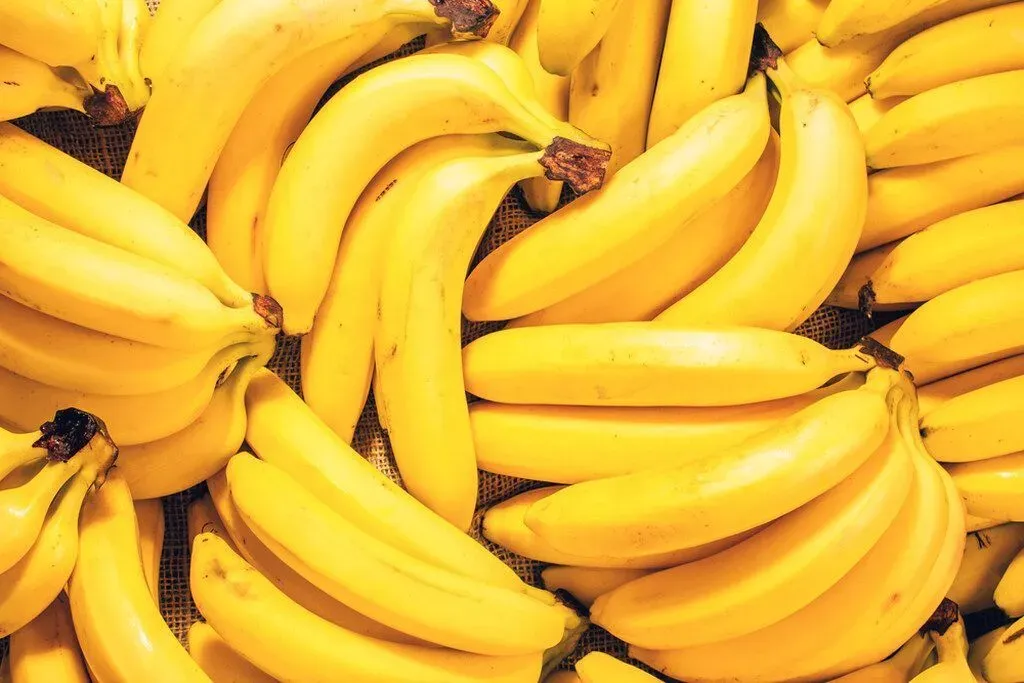
The ripeness of the banana also matters. A very ripe, yellow banana with brown spots has more sugar than a greener one. If you love bananas, consider eating them when they are slightly less ripe. Or, limit yourself to half a banana in your smoothie instead of a whole one.
| Feature | Benefit |
|---|---|
| Excellent Source of Potassium | Essential for heart health and blood pressure regulation. |
| High in Carbohydrates | Provides a quick and sustained source of energy. |
| Contains Prebiotic Fiber | Feeds the good bacteria in your gut. |
| Pros | Cons |
|---|---|
| Great for a quick energy boost. | Higher in calories and carbs than most fruits. |
| High in potassium for muscle function. | |
| Easy to digest for most people. | |
| Very affordable and widely available. |
5. Dried Fruits: Nature's Concentrated Candy
Dried fruits like raisins, dates, figs, and apricots are perhaps the most important to limit. The drying process removes all the water. This leaves a small, dense fruit that is extremely high in sugar and calories. They are essentially concentrated versions of their fresh counterparts.
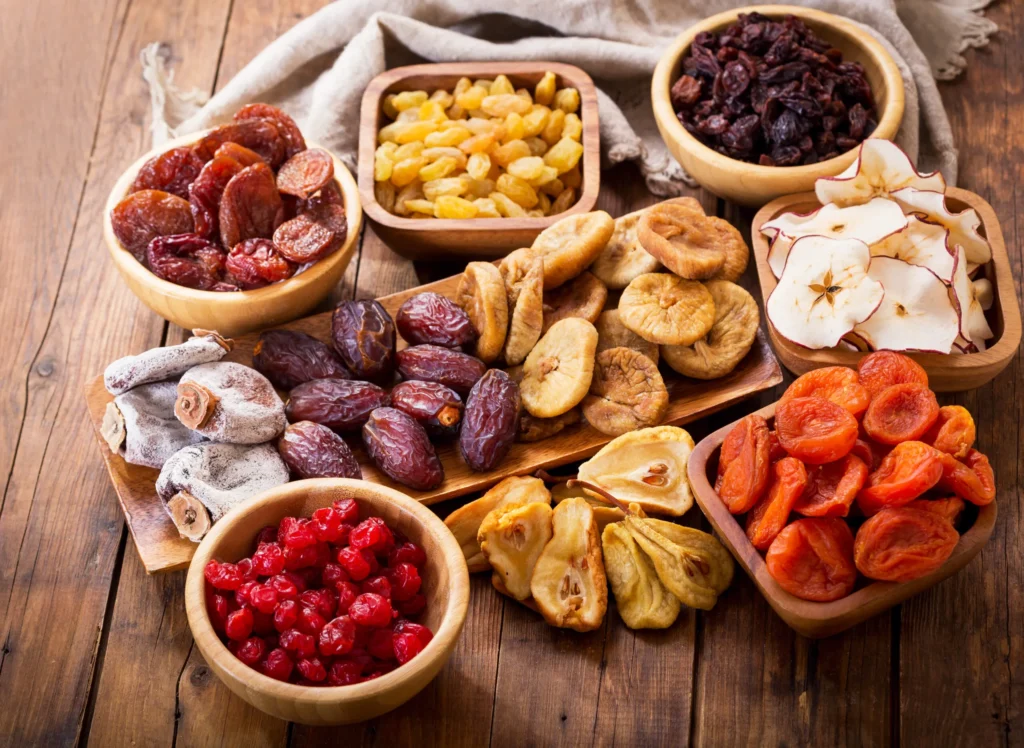
For example, a cup of fresh grapes has about 104 calories. A cup of raisins has nearly 500 calories. It is incredibly easy to overeat these sweet snacks. A small handful can contain the same amount of sugar as a can of soda. While they do have fiber, their caloric density works against most weight loss plans.
| Feature | Benefit |
|---|---|
| Highly Concentrated Nutrients | A small amount provides significant fiber and minerals. |
| Long Shelf Life | A convenient pantry staple that doesn't spoil quickly. |
| Natural Sweetener | Can be used in baking as a healthier alternative to refined sugar. |
| Pros | Cons |
|---|---|
| Long shelf life and easy to store. | Extremely high in concentrated sugar and calories. |
| A good source of fiber and iron. | |
| Can be a healthy alternative to candy. | |
| Useful for quick energy during exercise. |
Smart Fruit Swaps for Better Weight Loss Results
So, what should you be eating instead? The best fruits for weight loss are typically high in water and fiber, and lower in sugar and calories. These choices will help you feel full and satisfied while keeping your calorie intake in check.
Berries: Your Low-Calorie, High-Fiber Friends
Strawberries, blueberries, raspberries, and blackberries are your best friends on a weight loss journey. They are incredibly low in sugar and calories. They are also loaded with fiber and antioxidants. A full cup of strawberries has only about 50 calories and 7 grams of sugar.
Melons: High in Water, Low in Calories
Fruits like watermelon, cantaloupe, and honeydew are over 90% water. This high water content means you can eat a large volume without consuming many calories. It's a great way to hydrate and satisfy a sweet craving at the same time.
Apples and Pears: The Fiber-Packed Staples
Apples and pears are fantastic choices due to their high fiber content. The fiber, particularly in the skin, slows down digestion. This keeps you feeling fuller for longer. A medium apple is a perfect, crunchy snack that can curb hunger between meals.
Final Verdict: Should You Ban These Fruits From Your Diet?
Absolutely not. The goal is never to ban whole food groups. A healthy relationship with food is built on balance and moderation, not restriction and fear. These five fruits still offer immense nutritional value.
The Balanced Approach: Moderation Over Elimination
The key takeaway is to practice mindful eating and portion control. If you love mangoes, have a few slices instead of the whole fruit. If you enjoy grapes, count out a small bunch instead of eating from the bag. Balance is the foundation of a sustainable, healthy lifestyle.
Who Will Benefit Most from Being Mindful?
Anyone on a weight loss journey will benefit from this knowledge. It is especially helpful for those on a strict calorie-controlled diet. People managing blood sugar levels, such as those with insulin resistance or diabetes, should also be particularly mindful of their fruit choices.
Our Final Recommendation
Don't be afraid of fruit. Instead, be smart about it. Prioritize low-sugar, high-fiber options like berries, melons, and apples most of the time. Enjoy higher-sugar fruits like mangoes and cherries as a deliberate treat in a measured portion. This balanced approach will help you reach your weight loss goals without feeling deprived.
Frequently Asked Questions (FAQs)
Are fruits making me fat?
No, fruit itself is not making you fat. Overeating any food, including fruit, can lead to a calorie surplus, which causes weight gain. The issue is often the quantity and type of fruit being consumed, not the fruit itself.
What is the best time of day to eat fruit?
There is no single “best” time. However, eating fruit with a source of protein or healthy fat (like an apple with peanut butter or berries with Greek yogurt) can help stabilize blood sugar levels and keep you fuller for longer.
How much fruit is too much?
For most people on a weight loss plan, 2-3 servings of fruit per day is a good guideline. A serving is typically one medium piece of fruit (like an apple) or about one cup of berries or melon.
Should I choose fruit juice over whole fruits?
No, always choose whole fruits. Fruit juice is stripped of its fiber, leaving you with concentrated sugar and calories. It's very easy to drink hundreds of calories without feeling full at all.
Can I eat these “fruits to avoid” and still lose weight?
Yes, you absolutely can. The key is strict portion control. If you accurately track your calories and ensure you remain in a deficit, you can fit small amounts of any fruit into your diet.
Are frozen fruits as healthy as fresh ones?
Yes, frozen fruits are an excellent option. They are often frozen at peak ripeness, which preserves their nutrients. Just be sure to buy plain frozen fruit with no added sugars or syrups.
Lamartine is an experienced researcher who produces evidence-based content focusing on health, wellness, supplements, lifestyle, and utilities. On the website holistichealthpathways.com, he offers objective, research-backed information to help readers make informed choices.


